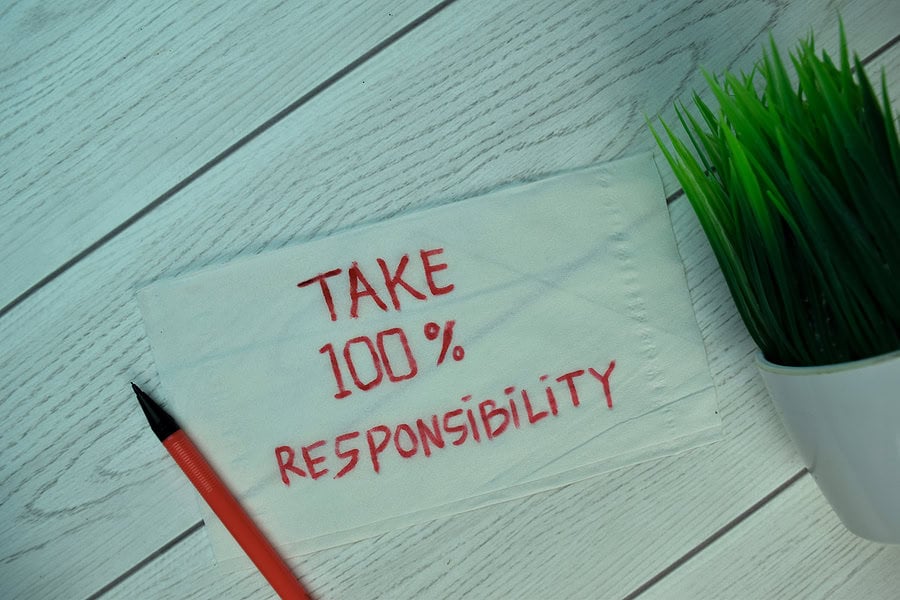- Mend
- Posts
- How to Stop Feeling Like a Terrible Person for What You Did
How to Stop Feeling Like a Terrible Person for What You Did
How to Stop Feeling Like a Terrible Person for What You Did
I’ve lost count of how many people I’ve spoken with on the phone who ask me some version of the same question: How do I live with myself after what I did?
Some ask it outright. Others circle around it, buried under layers of guilt and silence. But you can still hear it in their voice that they’ve become someone even they can’t face.
Maybe that’s where you are right now. You’ve owned what happened. You’ve apologized. You’ve started reading the books and trying to show up differently. But under all of that effort is this voice saying, “None of this matters. I’m still the person who broke something sacred.”
If that sounds familiar, I want you to hear this clearly. You’re not a terrible person. You’re a person who made a terrible decision. That might feel like a soft distinction, but it isn’t. It’s the difference between shame that keeps you stuck and accountability that helps you grow.
The Shame Trap and Why It Feels So Real
After an affair, especially if your spouse is still in pain or the relationship has shifted, it’s easy to take all of that hurt and assume it must mean something permanent about you. Shame doesn’t stop at “I did something wrong.” It keeps going until you believe “There’s something wrong with me.” It turns one painful decision into your entire identity.
That kind of thinking doesn’t just stay in your head. It affects everything, like your ability to show up, your willingness to repair, and your hope that anything could feel normal again. It disconnects you from your spouse, from your integrity, and from the part of yourself that still wants to do better.
But here’s something most people don’t realize. That pain you feel right now, along with the grief, the guilt, the heaviness, is not proof that you’re a lost cause. It’s proof that you care. People who don’t care don’t ask this question. They justify, minimize, or move on. You’re not doing that. You’re in it. And as painful as that is, it also means there’s hope.
Why Self-Punishment Isn’t the Same as Accountability
A lot of people confuse shame with taking responsibility. They think that if they stop feeling terrible, they must be letting themselves off the hook. So they hold onto guilt like it’s a form of penance. But shame and accountability are not the same.
Shame says, “I’m the problem.”
Accountability says, “I caused a problem, and I want to repair it.”
Shame keeps you spinning in your own head. Accountability keeps you grounded in the present. Shame is self-focused and leads to collapse. Accountability is other-focused and leads to change. One keeps you isolated. The other helps you rebuild.
Shame doesn’t make you safer for your spouse. It doesn’t rebuild trust. If anything, it makes you emotionally unavailable because you’re too caught up in punishing yourself to actually stay present with the pain you caused. And staying present is exactly what your spouse needs most right now.
What You’re Thinking But Can’t Admit
When I work with unfaithful partners, I often hear them express fears that go deeper than guilt. Fears like:
What if this is just who I am?
What if my spouse never sees me differently?
What if I’ll never be able to undo the damage?
What if I can’t forgive myself?
These are real questions. And they don’t have easy answers. But they’re not disqualifying. And asking them doesn’t make you weak or irredeemable. It makes you someone who’s willing to face what you’ve done and not run from it.
You don’t have to answer all those questions today. But you can start by asking a better one: Who do I want to become now that I know what I’m capable of?
That’s the shift. That’s where healing begins, not just for your spouse, but for you.
What Growth Actually Looks Like
I once worked with a man named Aaron who told me, “I feel like scum. I don’t deserve to be in the same room with my wife.” Every time she cried or triggered, he collapsed into shame. He shut down, not because he didn’t care, but because he didn’t know how to carry the weight of what he’d done.
Eventually, I told him, “It’s not a question of what you deserve. It’s a question of who you’re becoming from here.”
That seemed to land with him. He stopped using guilt as a shield and started answering hard questions with honesty. He began staying present in difficult conversations, instead of pulling away. His wife didn’t trust him overnight, but she began to notice the shift. Not because he said all the right things, but because he showed up differently. More grounded. More open. More real.
And that seemed to help them turn a healing corner. It wasn’t about perfection, but presence.
Letting Go of the Shame Story
If you’re stuck in that loop where every moment of effort gets overshadowed by the voice that says, “You’re just a terrible person,” take a pause. You don’t have to stay there. You don’t have to carry shame to prove you care. What matters is what you choose to do next.
You are not the worst thing you’ve ever done.
You’re someone who caused pain, yes. But you’re also someone who can take ownership, who can grow and who can become safe again.
You don’t have to do it perfectly. But you do have to keep showing up. And if you need help knowing what that looks like, that’s why I’m here. This is what we do in mentoring. We walk through the shame together. We build something better, not by erasing the past, but by facing it fully and refusing to stay stuck in it.
“To conquer fear is the beginning of wisdom."

Individual Coaching for Unfaithful Men & Women
For those ready to face the truth, not just escape the pain.
If you’ve had an affair and you’re still carrying guilt, confusion, or that quiet fear that you might mess it all up again — you’re not alone. But staying stuck doesn’t help anyone, least of all you.
This isn’t about punishment.
It’s about clarity. Ownership. And becoming someone you can actually respect.
With mentoring, we’ll work together to uncover the deeper patterns behind what happened — not to excuse it, but to transform it. You’ll get honest, compassionate guidance rooted in lived experience — not theory. No judgment. No performance.
Just a place to get real, do the work, and become the partner, parent, and person you know you’re capable of being.
If you’re ready to stop hiding from yourself and start rebuilding from the inside out — I’m here.
From the World of Self-Improvement
Relationships
Emotional/Mental Well-being
Personal Growth
Physical Well-being
Professional and Financial
Feeling Stuck? Here's How We Can Help You Move Forward
When you're ready for more than just reading… here are two powerful ways to get traction in your healing journey:
1. Start with a Program That Fits Where You Are. Whether you're the betrayed partner trying to survive the chaos—or the unfaithful partner trying to stop making it worse—there's a resource here that speaks directly to you.
→ Survive and Thrive after Infidelity - For betrayed spouses ready to steady themselves and start rebuilding.
This full program walks you through what to expect after D-day, how to calm the emotional rollercoaster, and how to reclaim your power.
→ Get the clarity and support you need to not just survive—but thrive.
→ The Unfaithful Person's Guide to Helping Your Spouse Heal From Your Affair: For unfaithful partners who don’t want to keep guessing what helps.
This guide covers the 24 critical tasks that shift you from betrayer to healer. It's not fluff—it’s the real work your partner needs to see from you.
→ Stop spinning in shame and start showing up differently.
2. Talk to Someone Who Gets It - Sometimes, you don’t need more information. You need a real conversation with someone who’s been where you are. Book a Mentoring Session
Whether you're the betrayed or the unfaithful partner, mentoring gives you space to be heard, get honest, and receive personalized guidance.
→ Not just sympathy—real empathy. From people who’ve lived it.
Take care!
Linda & Doug
You are receiving this email because you signed up for the Mend newsletter.
Was this email forwarded to you? Get your own sub here.








:max_bytes(150000):strip_icc()/GettyImages-1338866312-d62b3ba1dcc249e4a378a92ccea73493.jpg)



